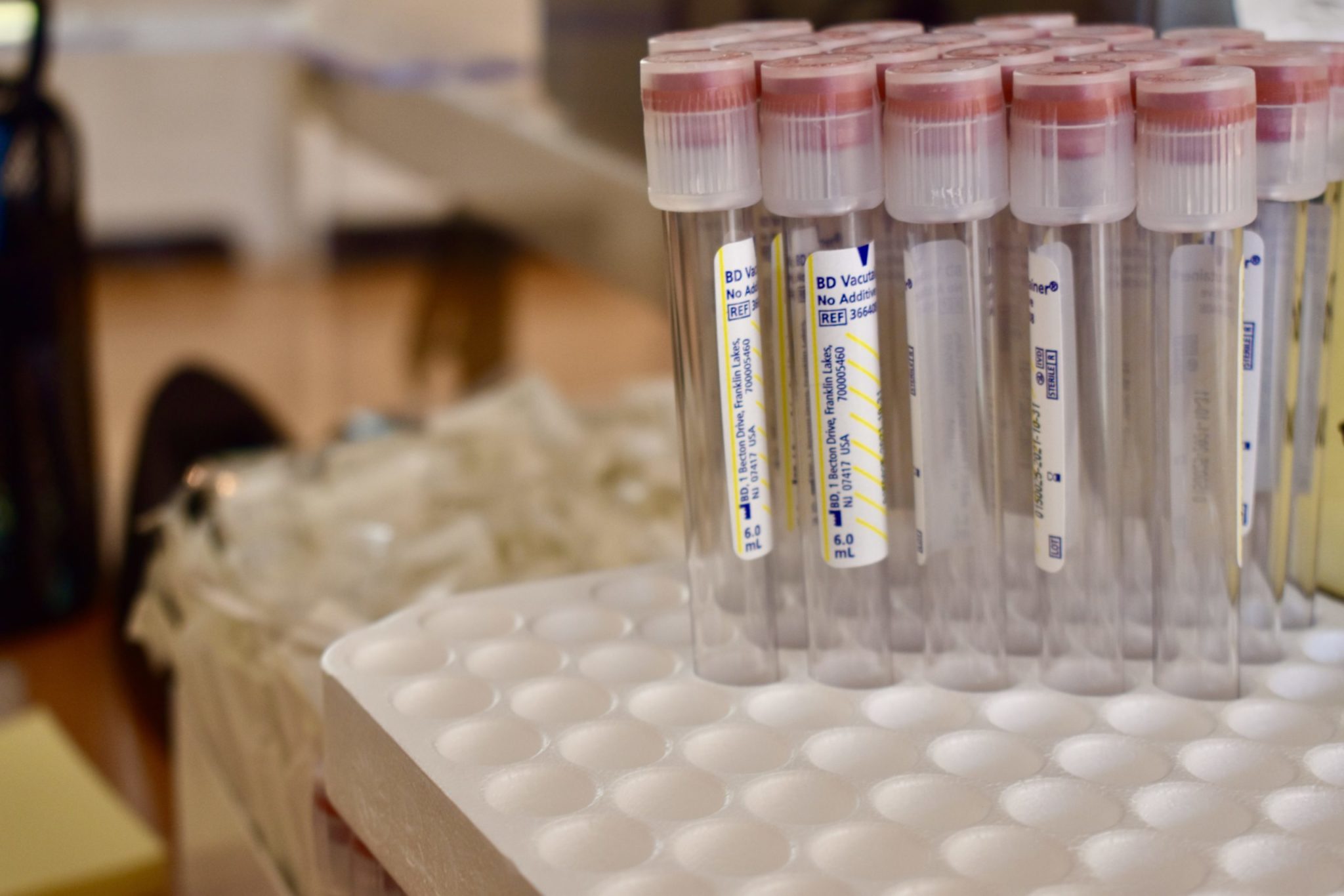
Courtesy of Regina Sung
Since arriving on campus in late August amid the pandemic, asymptomatic undergraduate and graduate students have participated in a twice-weekly coronavirus testing program. Faculty and staff who come into frequent contact with the students undergo weekly testing.
Asymptomatic testing detects and isolates those with early stages of COVID-19 — when community members do not know if they are infected and may transmit the virus to others. Students and staff self-schedule tests at one of 14 testing sites on campus. After checking into a testing site, they use a swab in a testing booth designed to minimize any aerosol-related risk of transmission.
Swabs are then placed in a collection container, before they are processed off-site by the Broad Institute, a molecular diagnostic lab affiliated with Harvard and the Massachusetts Institute of Technology. With over 100 higher education schools using its services, the lab has committed to providing results within 24 hours of the tests arriving at its headquarters in Cambridge, Massachusetts.
“We have been measuring turnaround time from the time the sample is received to the time we receive the results, and our seven-day average is running 21.4 hours, which includes the time to courier the samples to Cambridge,” Chief Quality Officer of Yale Health Madeline Wilson said. “Right now, the Broad is running over 50,000 samples daily, so [it] has a laser focus on high throughput.”
Wilson has worked on testing strategies for COVID-19 since March. In late April, as the chair of Yale’s Testing and Tracing Committee, she helped design the University’s testing and contact tracing program into the late spring and summer.
According to Wilson, the current testing method is approximately 90 to 95 percent accurate. The false negativity rate is between 5 and 10 percent, and the false positivity rate falls between and 0.2 to 0.5 percent.
“If for some reason the swabbing is inadequate, not enough tissue in the sample, the result comes back as ‘invalid,’ meaning that human DNA is not detected in the sample,” Wilson said. “This affects less than one percent of samples. There are other technical problems that can make a sample not usable or not able to be processed, but these are uncommon overall.”
In the current system, those with positive test results receive a call from Yale Health before moving to isolation housing in Bingham Hall for all on-campus students, as well as off-campus students who would like the option. The next steps include contact tracing and regular check-ins from the Yale Health Care Management team.
Some community members are pleased with the current system.
“I feel safe because of the frequent testing, and I know that we’re super privileged to have really good testing and access to that,” said Tiana Luo ’24.
Anup Bottu ’24 expressed similar sentiments regarding the testing system and compared it to the testing available to him back home.
“[It’s] much better than my home state, Georgia, so I feel pretty secure here, to be honest. I was tested once [in Georgia], and I had to wait in line for eight hours,” Bottu said. Yale students, on average, wait mere minutes before being tested, according to Bottu.
Despite more rapid testing methodologies like antigen testing expected this fall, Wilson and her peers seem confident with their approach. While antigen testing can be vital to clinical settings like hospitals, they are “less well suited for high volume, high throughput programs like ours,” Wilson said.
Even so, her team hopes to do some parallel testing with saliva samples this fall to learn more about the SalivaDirect assay developed at the School of Public Health.
“Overall, while we are eagerly following new approaches, we are pleased with the program’s performance to date and are taking the approach, ‘If it ain’t broke, don’t fix it,’” she said.
Since Aug. 1, Yale has recorded 19 positive cases across faculty and students.
Zach Morris | zach.morris@yale.edu








